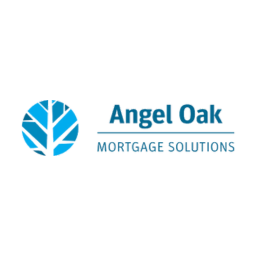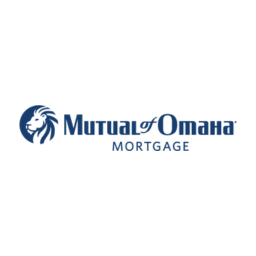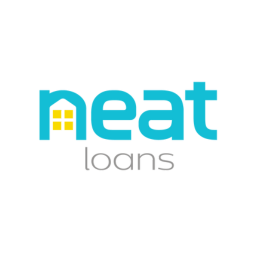The build-up to buying a home will all feel worth it once you make the down payment, get approved for a mortgage, and can proudly say you are a homeowner. While some people only take out one mortgage, other people refinance their loans, take out reverse mortgages, and explore other financial products.
Home loans are important resources because they make it easier to buy homes. Understanding how these financial products work can help you make better decisions that impact your monthly expenses as a homeowner and explore more possibilities. This comprehensive guide will discuss the types of mortgage loans, how to get a mortgage, and key details you should know before getting a mortgage.
What Are Mortgage Loans?
Mortgage loans are financial products that make homeownership more accessible to individuals. Instead of making a lump sum payment, you make monthly payments over a set duration, typically 15 or 30 years. These monthly payments help you build equity in your home and eventually become debt-free if you continue to make the payments. Mortgage loans have various terms and rates that will impact how much you pay over the loan’s duration.
If you already have a mortgage loan but want to take some cash out to fund another project or lower your mortgage loan payments, look at this page on Mortgage Refinancing.
How Do Mortgage Loans Work?
Mortgage loans have terms and interest rates that impact your monthly payments. A lengthier mortgage loan has lower monthly payments and is easier to obtain. A shorter mortgage, such as a 15-year loan, has higher monthly payments and may be more difficult to get. However, some people opt for shorter mortgages to get out of debt sooner.
The mortgage lender will assign an interest rate for your loan based on your credit score, debt-to-income ratio, and other factors. You have to keep up with monthly payments to keep the home, build equity, and eventually become debt-free.
Home Loan Lenders
Considering a mortgage from Mutual of Omaha? Read this comprehensive review to see and find out if they are the right fit for you.

Looking for a reliable mortgage lender? Read this CrossCountry Mortgage review and discover why they are a top choice for homebuyers.

Learn how Angel Oak mortgage lender can offer you home loan solutions tailored to meet your specific financing needs.

Need a mortgage but have less-than-perfect credit? Top Flite Financial will work with you to find the best solution for your unique situation.
Should you get a VA loan with Veterans United? This review covers key details you should know before requesting a free quote.
Need a straightforward mortgage loan? Discover how Neat Loans provides efficient and reliable loan services in this review.
Types of Mortgage Loans
Aspiring homeowners and people who want to refinance their properties can pursue several types of mortgages. These are some of the mortgages you can take out for a home.
Fixed-Rate vs. Adjustable-Rate Mortgage (ARM)
A fixed-rate mortgage has consistent monthly payments. The interest rate remains fixed regardless of how interest rates fluctuate on other loans. You may have a higher interest rate initially if you opt for a fixed-rate loan, but your monthly budget will be more predictable.
An adjustable-rate mortgage (ARM) is a financial product with a variable interest rate. These interest rates are not set in stone and can increase or decrease depending on market conditions. If interest rates rise, you can suddenly get stuck with a higher monthly mortgage payment. If interest rates continue to rise, variable rates can create significant financial crunches for homeowners.
However, variable-rate loans typically start off with lower interest rates, and those rates can decrease if interest rates go down. People with fixed-rate mortgages will have to refinance and pay closing costs for the refinance to get a lower interest rate. Fixed-rate mortgages provide more stability, while adjustable-rate mortgages can result in lower monthly payments but have greater risk.
Traditional vs. Non-traditional Mortgage Loans
A traditional mortgage is a financial product issued by a non-government entity. Private mortgage lenders issue these loans and tend to have more rigorous requirements than non-traditional mortgages. Conventional mortgages tend to have fixed interest rates, but some of them have variable interest rates.
Non-traditional mortgage loans cover a vast array of options. These financial products do not have the qualities of a traditional mortgage. For instance, a borrower may have small payments in the beginning that become significantly larger in the future. Borrowers may also have balloon payments, which means you must make a large payment at the end of the loan. These loans do not fully amortize at the end of the loan term, and borrowers have to quickly raise funds to cover the gap.
Non-traditional loans can be easier to obtain than traditional loans. Non-traditional loans may have more generous credit score minimums and debt-to-income requirements. However, these same loans are often more expensive than conventional loans. Your non-traditional loan will likely have a higher interest rate and fees compared to a conventional mortgage.
Conforming vs. Non-conforming Mortgage Loans
Conforming mortgages meet the requirements set by Fannie Mae and Freddie Mac. The requirements impact which borrowers can obtain loans and the maximum amount they can borrow. The maximum amount you can borrow for a conforming loan depends on your area, and the limits change each year to reflect changes in the housing market.
The baseline conforming loan limit for 2023 is $726,200. Homeowners in high-cost areas have a mortgage loan limit of $1,089,300. For some homeowners, the conforming loan amount is enough to cover the home purchase. However, these loans do not accommodate more expensive purchases. If you need a higher loan amount than the conforming limit, you will have to use a non-conforming mortgage loan.
A non-conforming mortgage loan does not adhere to Fannie Mae and Freddie Mac requirements. If you need to borrow over $1.1 million to buy a home in a high-cost area, you will need a non-conforming mortgage. These mortgages can provide more flexibility but tend to be more expensive. A non-conforming mortgage lender may also have a higher minimum down payment requirement.
Some non-conforming loans also have lower credit score requirements, and lenders may also be fine with a higher debt-to-income ratio. Non-conforming loans give borrowers more choices, but you may benefit more from a conforming loan if you can qualify for it.
Government-insured Mortgages
The government issues three types of mortgages. FHA loans are financial products from the Federal Housing Administration that make homeownership more accessible. You can get an FHA loan with a credit score as low as 500 if you make a 10% down payment. Consumers can make a 3% minimum down payment if they have credit scores above 580.
The U.S. Department of Agriculture issues USDA loans for borrowers who want financing for qualifying rural homes. You also need to fulfill certain income requirements and other guidelines to get a USDA loan. Unlike other financial products, USDA loans do not require a down payment. While you can make a down payment to minimize your monthly expenses, you can also buy a rural property without putting any money down.
VA loans are issued by the Department of Veterans Affairs. The VA sets requirements for the loan, and you will need a valid Certificate of Eligibility. The amount of service and the capacity in which you or your spouse served the country impacts eligibility requirements. If you are eligible for a VA loan, you can buy a home without putting any money down.
Unlike most loans with no down payment requirements, VA loan borrowers also do not have to worry about private mortgage insurance. PMI is a major disadvantage of FHA loans, and you will have to pay this premium on a conventional loan until you have built up at least 20% equity in your home. VA loans also have lower interest rates than most financial products, and you may be able to get a VA loan even if you have a bad credit score or a bankruptcy in your credit history.
Interest-Only Mortgage Loans
Interest-only mortgage loans start out affordable but can quickly get expensive. However, the cushion they provide can help you get your finances in order by the time the more expensive payments arrive.
Interest-only mortgage loans allow you to pay only the loan’s interest for a set period of time. Interest-only payments translate into lower monthly mortgage payments when you are first getting started. You will eventually have to make monthly principal payments once you run out of interest to pay. Your monthly mortgage payments will jump considerably once you transition from interest-only payments to principal payments. It’s important to prepare for that jump in your mortgage expenses so you can continue making on-time payments.
Reverse Mortgages
Reverse mortgages allow you to receive monthly payments based on the equity you have built into your home. This financial product is best for retirees who want to live in their neighborhoods and tap into their home equity. As long as they meet reverse mortgage requirements, the debt is not due until the homeowner dies.
To be eligible for a reverse mortgage, you must be 62 years or older. Reverse mortgages can only be taken out from a primary residence. This strategy isn’t viable for real estate investors who want to receive cash flow from their investment properties through reverse mortgages. A reverse mortgage is also known as a home equity conversion mortgage (HECM).
Second Mortgages
A second mortgage is another loan against your home. Some homeowners need extra money, but they may have gotten a great deal on their current mortgage. Some borrowers will take out a second mortgage instead of doing a cash-out refinance, ending up with a higher interest rate.
Second mortgages have different terms and interest rates than the original mortgages. You will have to contend with two monthly mortgage payments while you have a second mortgage. Some people make two mortgage payments each month after buying a new home and looking for a buyer for their former home. During this transition, you may be temporarily stuck with two monthly mortgage payments.
Where Can You Get Mortgage Loans?
Many lenders offer mortgage loans. You can reach out to traditional banks, credit unions, and online lenders for mortgage loans. Financial institutions offer some of the best interest rates, but they often have more stringent requirements and can prolong the process. Online mortgage lenders tend to have competitive interest rates, quicker approval times, and more generous credit score and debt-to-income ratio requirements.
Home Loan Lenders
Considering a mortgage from Mutual of Omaha? Read this comprehensive review to see and find out if they are the right fit for you.

Looking for a reliable mortgage lender? Read this CrossCountry Mortgage review and discover why they are a top choice for homebuyers.

Learn how Angel Oak mortgage lender can offer you home loan solutions tailored to meet your specific financing needs.

Need a mortgage but have less-than-perfect credit? Top Flite Financial will work with you to find the best solution for your unique situation.
Should you get a VA loan with Veterans United? This review covers key details you should know before requesting a free quote.
Need a straightforward mortgage loan? Discover how Neat Loans provides efficient and reliable loan services in this review.
How to Compare Mortgage Loans
Homeowners and buyers should look at several factors when comparing mortgage loans:
- Interest rates: Mortgage lenders with lower interest rates are more attractive because a lower interest rate reduces your monthly payment.
- Requirements: Some mortgage lenders make it hard to qualify for their mortgages. You may need a great credit score to get loans from one lender, while other mortgage lenders accept less-than-perfect credit. You should also look at a mortgage loan’s debt-to-income ratio requirement.
- Terms: Can you get a 15-year mortgage, or do you have to commit to a 30-year mortgage? Some people prefer a 30-year mortgage for lower monthly payments, and it is important to assess what works for you. However, if you are not happy with the terms, you may want to consider another lender.
- Fees: Each lender has different origination and administrative fees. Higher fees can make the loan more cumbersome.
- Down payment minimum: You can get some mortgages without putting any money down, while other mortgage products require at least 10% down. Home buyers should assess how much money they can put down before applying for mortgages.
- The lender’s reputation: Check the mortgage lender’s online reviews to see what customers think about the company. You can also check the Better Business Bureau to see if the lender is accredited.
What are the Benefits of Getting a Mortgage Loan?
A mortgage loan presents several benefits for consumers:
- Buy a home sooner: You don’t have to save enough money to make an all-cash offer on your home. You can get started with a 3% down payment for a conventional mortgage, and some mortgages have no down payment requirements.
- Obtain an asset: Your home can gain value and appreciation over the long term. Real estate is a desirable asset that acts as an inflation hedge and can reward homeowners for years to come.
- Build your credit: Making on-time payments for your mortgage will improve your credit score. Some homeowners approach their lenders after raising their scores and refinance their mortgages to secure lower interest rates. A higher credit score can help you qualify for better interest rates and terms for all of your loans, not just mortgages.
- The feeling of being a homeowner: Many people view homeownership as a fundamental part of the American Dream. Buying a home can give you a deep sense of accomplishment and make you a part of a community.
- Get better terms for your home financing: If you refinance your mortgage, you can get a lower interest rate. Homeowners also have several ways to refinance their homes in ways that achieve their objectives. For instance, you can use a cats-out refinance to create a new mortgage loan and tap into some of your equity.
- More flexibility during retirement: You can take out a reverse mortgage to receive monthly payments and keep up with your living expenses. When you take out a reverse mortgage, you do not have to make monthly mortgage payments. Not only do you eliminate a major expense from your budget, but you also get to use your equity to cover other expenses. You can also borrow money through a second mortgage, cash-out refinance, or home equity line of credit. Being a homeowner gives you more choices, especially if you have a large equity position in your home.
What are the Risks of Getting a Mortgage Loan?
While mortgage loans have several advantages, it is important to consider the risks before getting started.
- Tying your money into one asset: When you buy a mortgage, you put a lot of your capital into a single asset. It’s more difficult to diversify your portfolio if you become a homeowner.
- Commitment to an area: While some people want to become a part of a community, you become committed to an area. If you do not like the area you bought your home in, you will either have to make it work or look for a new home. Both choices are undesirable. You can solve this issue by renting or looking for a home in an area you like.
- Adjustments to your budget: The monthly mortgage payments will take up significant space in your budget. You may have higher monthly expenses if you take out a mortgage compared to paying rent. However, the monthly expenses vary for each person.
- Falling behind on payments: If you fall behind on payments, your credit score will take a hit, and you can lose your home. A lower credit score will hurt your ability to become a tenant if necessary and qualify for additional loans.
- You are responsible for all of the fixes: Tenants can call their landlord if the plumbing needs help or if there are any issues. A property management team also oversees rental properties. If you buy a home, you are responsible for any necessary repairs, and those costs have to come from out of your pocket. The monthly mortgage payments are not the only cost of homeownership.
Home Loan Lenders
Considering a mortgage from Mutual of Omaha? Read this comprehensive review to see and find out if they are the right fit for you.

Looking for a reliable mortgage lender? Read this CrossCountry Mortgage review and discover why they are a top choice for homebuyers.

Learn how Angel Oak mortgage lender can offer you home loan solutions tailored to meet your specific financing needs.

Need a mortgage but have less-than-perfect credit? Top Flite Financial will work with you to find the best solution for your unique situation.
Should you get a VA loan with Veterans United? This review covers key details you should know before requesting a free quote.
Need a straightforward mortgage loan? Discover how Neat Loans provides efficient and reliable loan services in this review.
Common Requirements to Get a Mortgage Loan
Wondering what it takes to get a mortgage loan. These are some of the common requirements you will encounter when you go through the process.
Home Equity
The lender may want you to make a minimum down payment to get some initial equity into your home. A higher down payment will increase your chances of approval and help you secure a lower interest rate. If you want to use a reverse mortgage, you will need considerable home equity. Each lender has different requirements about how much home equity you need to access a mortgage.
Credit Score
Your credit score is one of the most important numbers that impact which loans you get and their terms. A higher credit score entitles you to better loan offers, but the credit score requirements vary across lenders and the type of loan. Some lenders have mortgage products with stringent requirements, but these same lenders may also offer FHA loans. Loans from the Federal Housing Administration have lower credit score requirements than other mortgage products. You can get an FHA loan even if you have a 500 credit score.
While a 500 credit score is enough for an FHA loan, it’s not enough for a conventional mortgage. You will need a 620 credit score to qualify for this loan. The credit score requirements vary considerably if you branch out to non-conforming loans.
Proof of Income
Lenders will request proof of income to assess your debt-to-income ratio. Lenders look through previous bank account statements, pay stubs, recent tax returns, and signed letters from employers. An applicant’s proof of income helps a lender calculate your debt-to-income ratio. A lower debt-to-income ratio is more favorable and will increase your chances of getting approved.
Borrowers can increase their debt-to-income ratios by making more money or lowering their monthly mortgage payments. This second point explains why it is easier to get a 30-year mortgage than a 15-year mortgage. Since 30-year mortgages have lower monthly payments, they result in more attractive debt-to-income ratios than 15-year mortgages.
Lenders want to make sure you can comfortably make the monthly mortgage payments before giving you a loan. Some lenders have more generous debt-to-income ratio requirements for their loans than others. Lenders may also offer various conforming and non-conforming loans, each with varying debt-to-income ratio requirements.
Proof of Assets
Your assets help lenders gauge your ability to repay the mortgage and stay on top of monthly payments. Lenders often request proof of assets to determine your net worth and financial strength.
Down Payment
Most mortgages have minimum down payment requirements. While you can get a VA loan or USDA loan without putting any money down, that decision will result in higher monthly payments. It is a good idea to save up for a down payment and build interest-free equity.
A 20% down payment would be ideal, but not every homeowner has enough money to make that investment. This equity percentage also gets you out of private mortgage insurance premiums. However, you can get a conventional mortgage with a 3% down payment, and FHA loans have a 3.5% minimum down payment. A higher credit score will make it easier for you to make the minimum down payment. Lenders will also consider how making a lower down payment will impact your debt-to-income ratio after obtaining the mortgage.
Personal and Financial Documents
Mortgage lenders will review your personal and financial documents to assess your ability to stay on top of mortgage payments. These documents include identification documents, bank account statements, and other resources.












